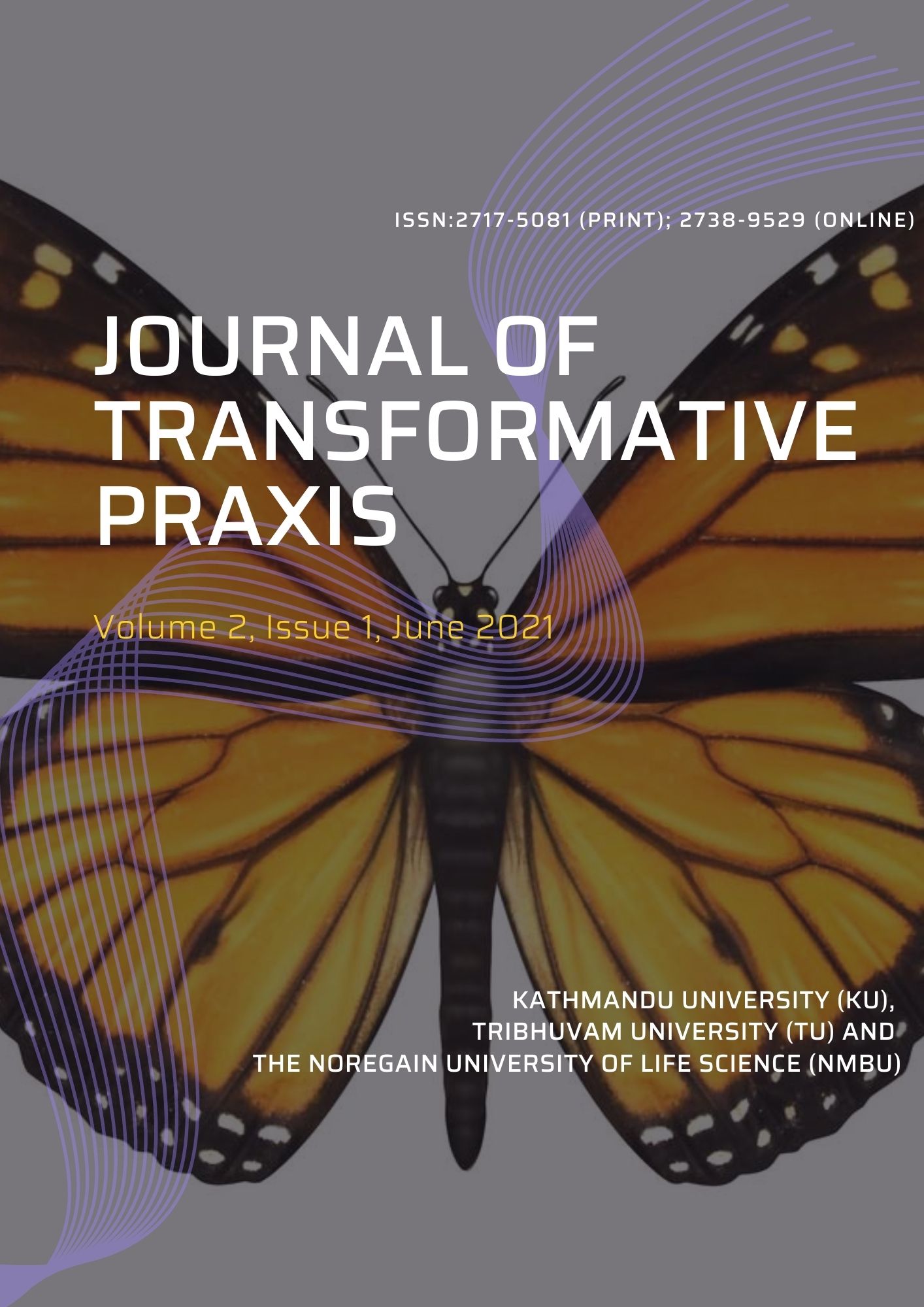Mythic Content as a Rhetoric in Government-aided School Textbooks of Nepal
Keywords:
Myths. Critical discourse analysis. Learning content. Ideology. Critical Pedagogy.Abstract
This paper offers a critical and political reading of the excerpts of myths included in government-sponsored school-level language textbooks of Nepal, and looks at how the content is more prone to instilling particular values than to teaching skills of language competence. Drawing on insights and postulations from Critical Discourse Analysis in general, and dispositive analysis in particular, it examines values embedded in the excerpts as a discursive site for the practice of knowledge-making and power. Given that textbooks are a cultural production at large, and therefore textual, the paper explores how the reproduction of mythical content has given rise to the pedagogy that serves the teleological purpose of producing the desired type of possible citizenry by keeping the essentialities of modern education such as critical engagement, linguistic and cognitive skills, the questioning attitude and critical thinking at the disposal. The paper concludes that the particular way of designation of the content is likely to halt the basic aim of producing the learners as active and critical social agents for the broader social transformation and calls for a revisit to mitigate the gap between the professed objectives and their materialization in language textbooks and make the learning content more goal oriented.
Downloads
Downloads
Published
How to Cite
Issue
Section
License
Copyright (c) 2021 Saroj GC

This work is licensed under a Creative Commons Attribution-NonCommercial-ShareAlike 4.0 International License.
This license enables reusers to distribute, remix, adapt, and build upon the material in any medium or format for noncommercial purposes only, and only so long as attribution is given to the creator. If you remix, adapt, or build upon the material, you must license the modified material under identical terms.




